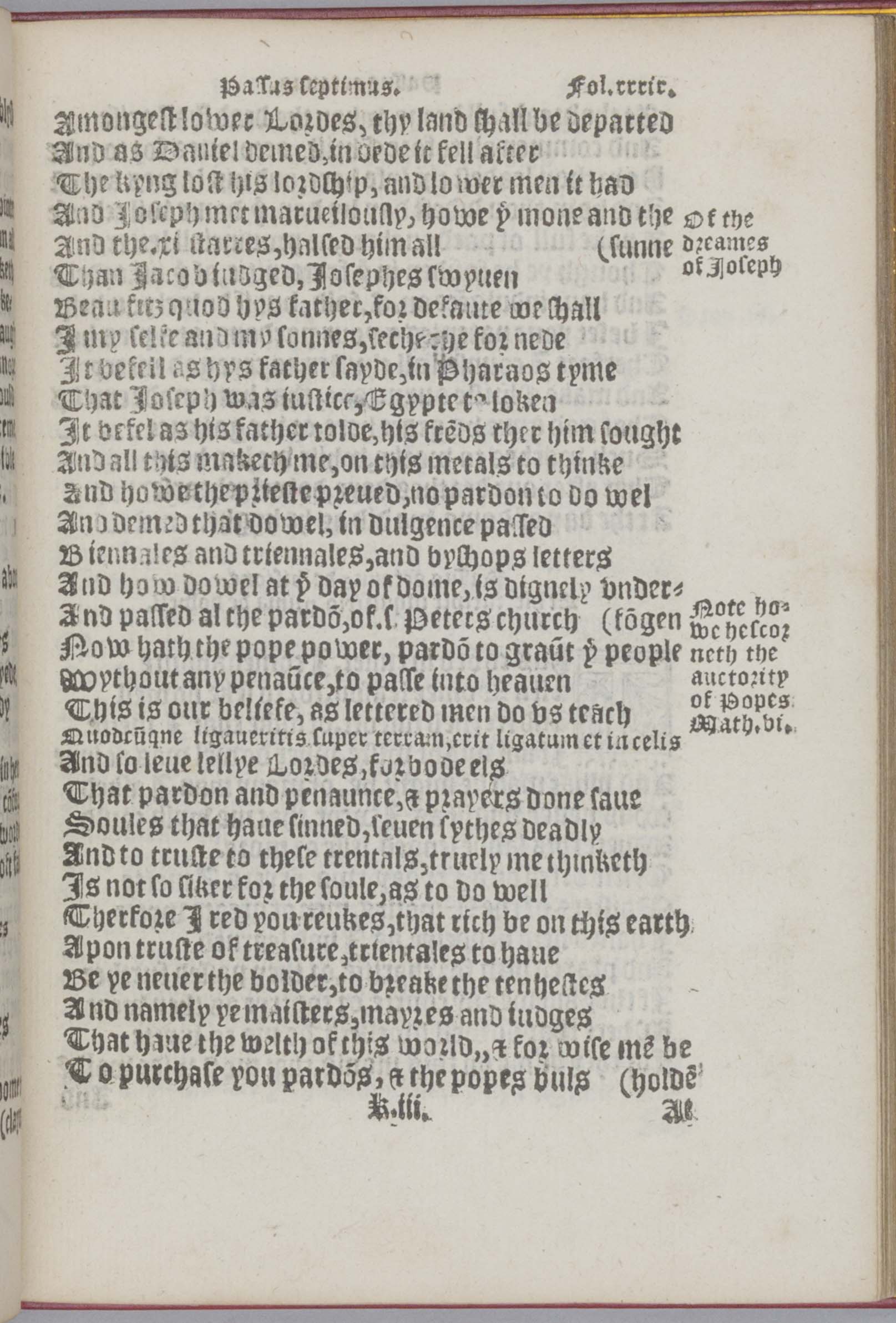
London: R. Crowley, 1550
[S.L.] I [Langland-1550]
Whilst the Reformation displaced some mediaeval literature, it used other texts to serve its own purpose. William Langland’s fourteenth-century alliterative poem Piers Plowman, a dream vision in which Holy Church sends Will the Dreamer forth on a pilgrimage in search of Truth, is a prime example. Very popular throughout the fifteenth century, it embodied concerns which later chimed with Reformers: Langland criticised clerical abuse within the Church, including such matters as the ignorance, sloth and vicious living of parish clergy; the decay into worldliness of monasticism; the grand living and avarice of prelates; and the political nature of the papacy. The Protestant writer, clergyman and publisher Robert Crowley produced three issues in Holburn in 1550. These are marked by his introductory letter to the reader, which draws implicit comparisons between Edward the Third’s days and Crowley’s own, and by marginal notes—more in the second and third printings than in this first—, many of which are Biblical references or summarise passages but a few of which draw attention to anti-papal or anti-monastic elements. After the first throes of the Reformation and Counter-Reformation Piers Plowman fell into obscurity until the nineteenth century, possibly because of difficulties in understanding its West Midland dialect.